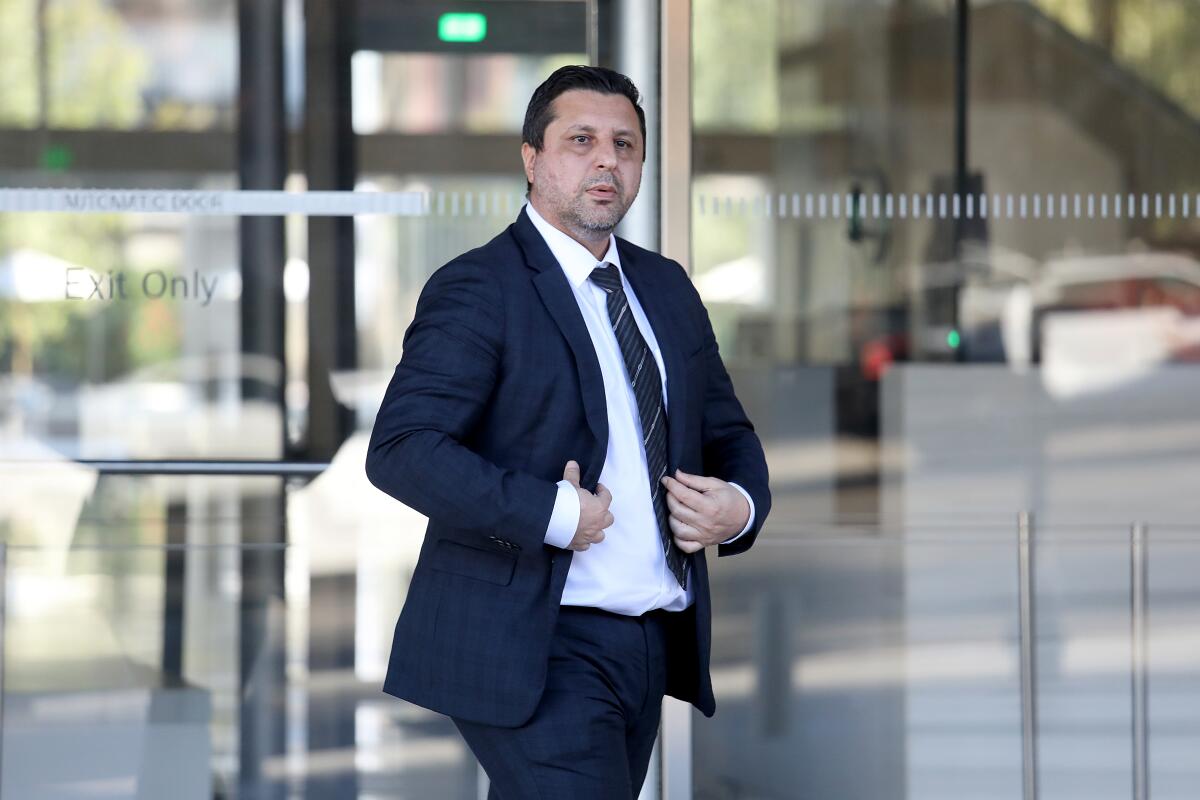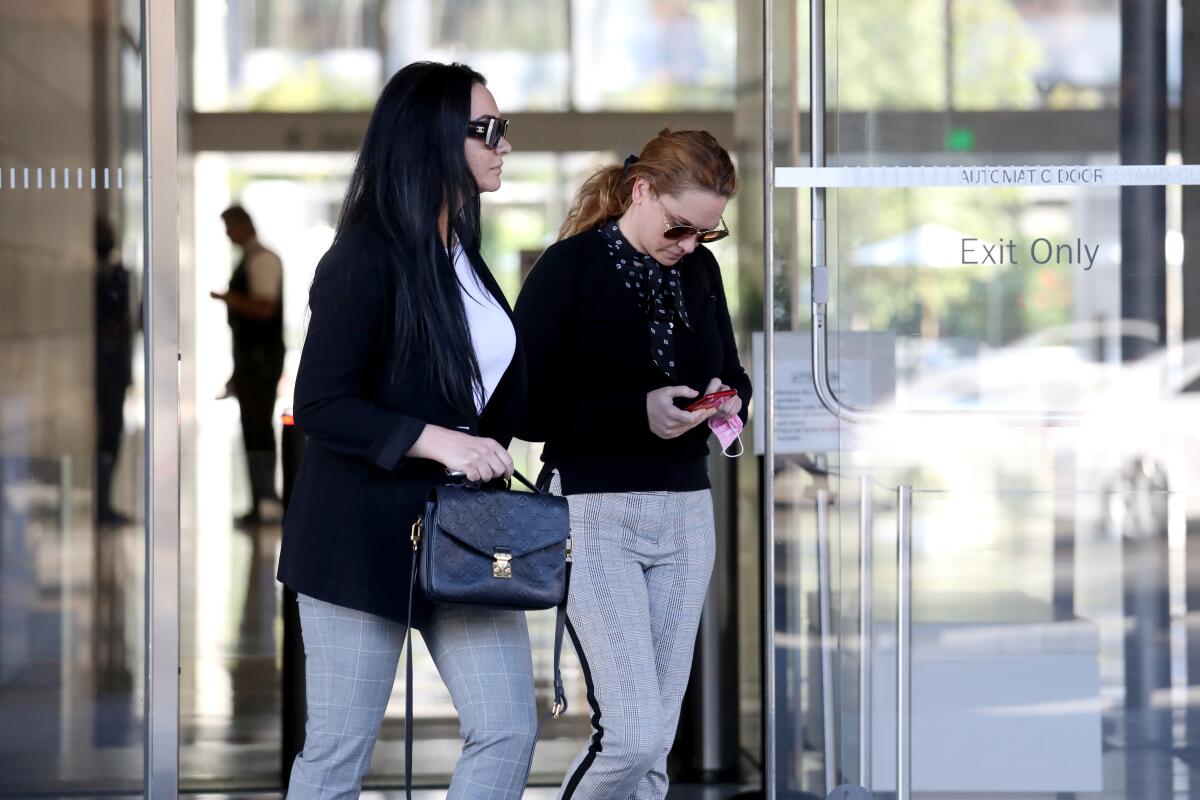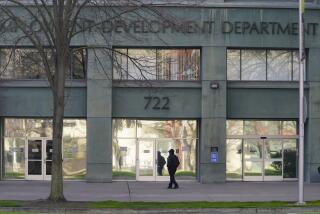Tarzana couple convicted in $18-million pandemic relief fraud flee and vanish, FBI says

A Tarzana couple are on the run from federal authorities after they sliced off their monitoring bracelets and fled while awaiting sentencing for the theft of millions of dollars in coronavirus pandemic relief funds, according to the FBI.
Richard Ayvazyan, 43, and Marietta Terabelian, 37, were convicted in June of conspiring with family members and others to fraudulently secure at least $18 million in emergency relief money.
The group, led by Ayvazyan, created an elaborate web of fictitious San Fernando Valley businesses to secure 151 loans under the Paycheck Protection and Economic Injury Disaster Loan programs.
The FBI’s Los Angeles office said on Twitter that the two are now considered fugitives.
“They have international ties as well as local ties but we’re not ruling anything out as to where they may have fled,” FBI spokeswoman Laura Eimiller said.
Federal authorities believe that the couple fled on Sunday afternoon from the $3.25-million house in Tarzana that they bought with the loan money they stole, she said. They were convicted of conspiracy to commit bank fraud, conspiracy to launder money and related crimes. The government is in the process of confiscating the house through a court-approved forfeiture.
A San Fernando Valley family was caught creating fake businesses to get pandemic disaster loans, then spending the money on houses, gold and diamonds.
Starting in March 2020, the couple and their six co-conspirators used stolen identities to set up bank accounts for a web of Los Angeles shell companies that submitted fake payrolls and forged tax returns with their applications for emergency loans that were quickly approved as the government scrambled to contain the economic fallout from the pandemic.
On June 25, a federal jury in Los Angeles convicted Ayvazyan, Terabelian and two relatives for their roles in the scam. Four accomplices pleaded guilty on the eve of trial.
At the end of the trial, U.S. District Judge Stephen V. Wilson rejected a request from prosecutors to revoke Ayvazyan’s bail and require him to await sentencing in jail. Ayvazyan’s attorney, Ashwin J. Ram, argued that his client posed no flight risk as long as he was required to wear a location monitoring bracelet.
“While there is simply no reason for Ayvazyan to flee anywhere, it would be impossible for him to do so when he cannot even leave his driveway without the government’s knowledge,” Ram wrote in court papers, underlining words for emphasis. “And if Ayvazyan wanted to flee, he would have done so already.”

The couple have three teenage children, who did not flee with their parents, according to people familiar with the matter.
Ram did not respond to a request for comment Wednesday.
Last week, after Ayvazyan and Terabelian asked Wilson for a six-week postponement of their Oct. 4 sentencing, prosecutors warned the judge there was a significant risk the couple would flee.
The couple, who were convicted of mortgage fraud a decade ago but were not sentenced to prison, are awaiting trial on state mortgage fraud charges unrelated to the pandemic, and they have a history of using fake or stolen identities, the prosecutors reminded Wilson.
“Defendants also have access to millions of dollars in stolen money the government has not yet been able to trace, furthering their potential means of escape and resources to evade law enforcement detection,” they wrote.
Wilson declined to postpone the sentencing.
On Tuesday, Assistant U.S. Atty. Catherine Ahn asked Wilson to order the U.S. Probation Office to give prosecutors and investigators information the office has gathered on places where Ayvazyan and Terabelian have spent time, along with any records on their attempts to tamper with their monitoring bracelets. The probation agency’s pretrial services officers require a court order to disclose such information, she said.
More to Read
Sign up for Essential California
The most important California stories and recommendations in your inbox every morning.
You may occasionally receive promotional content from the Los Angeles Times.













